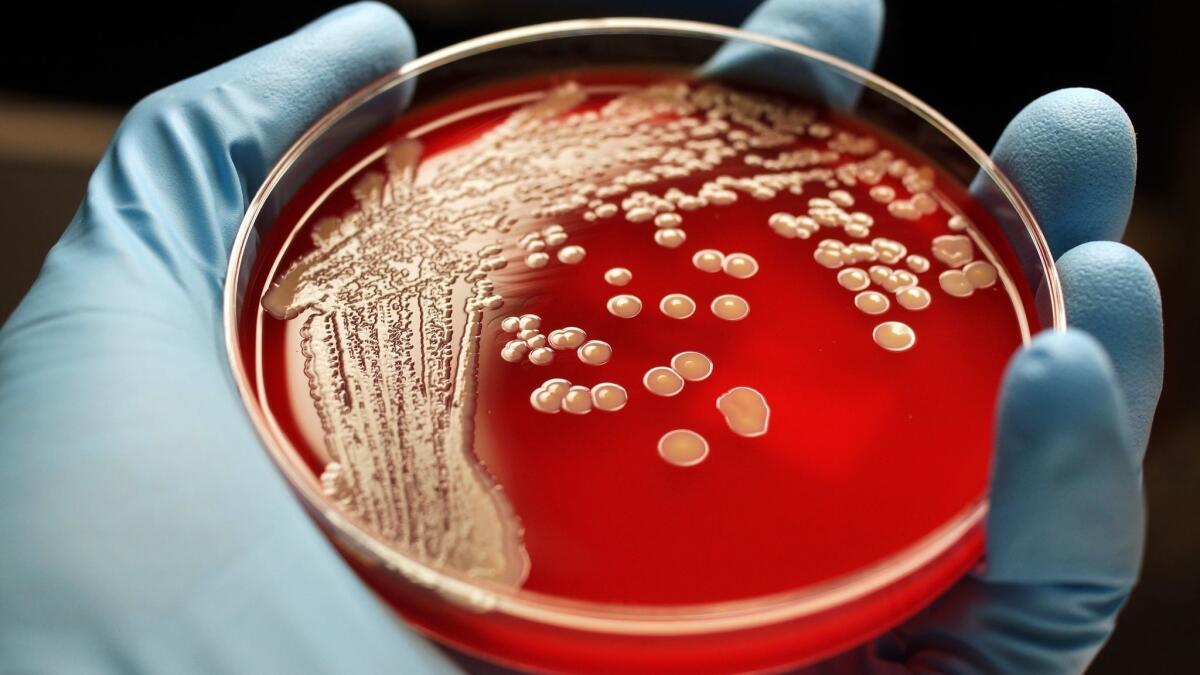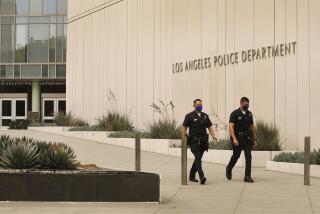LAPD officers may have been exposed to highly infectious MRSA bacteria

Several Los Angeles police officers at the department’s West Valley station in Reseda may have been exposed to MRSA, a type of staph bacteria that causes a highly contagious infection resistant to many antibiotics, officials said Tuesday.
It is not clear how many officers, if any, have been infected or how they potentially came into contact with the bacteria. An LAPD spokesman declined to provide specifics on the nature of the exposure.
Methicillin-resistant Staphylococcus aureus, or MRSA, infections are most commonly spread in hospitals and nursing homes, but also can affect other populations — like the homeless community — who live in crowded conditions. Infections can be transmitted through contact with a contaminated wound or by sharing personal items, such as towels or razors, that have touched infected skin, according to the Centers for Disease Control and Prevention.
The symptoms of a MRSA infection depend on the part of the body that is infected. People with skin infections often have swelling, warmth, redness and pain in the infected skin. If left untreated, MRSA can quickly spread throughout the body and cause life-threatening problems, including sepsis, according to the CDC.
LAPD officials said the work areas that may have been exposed to the bacteria have been disinfected.
“The health, safety, and well-being of our Los Angeles Police Department officers is critical and we are ensuring the officers exposed to this disease are cared for,” the department said in a statement. “First responders throughout the region and especially here in Los Angeles are constantly responding to incidents that put them at risk of potential exposure to various diseases, and that’s why the Department takes this incident very seriously.”
The LAPD’s announcement comes on top of another public health issue faced by the city after a February report revealed that the iconic City Hall building was infested with vermin. Employees shared stories of flea bites and rats skittering down hallways, over official documents and into ceiling panels.
In response, crews mobilized to clean up the entire Civic Center area, including stepping up street sweeping and removing vegetation that may provide animals with shelter or food. Employees have been told to empty the trash each night and put away food and water that may attract animals.
One City Hall employee, a deputy city attorney, said she contracted typhus.
The disease, which has been around since medieval times, is carried by rats. Fleas become infected when they bite rats and then spread it to humans either through bites or when the insects’ feces are rubbed into a cut or scrape in a person’s skin.
Twitter: @Hannahnfry
More to Read
Start your day right
Sign up for Essential California for news, features and recommendations from the L.A. Times and beyond in your inbox six days a week.
You may occasionally receive promotional content from the Los Angeles Times.







